Joana Torres Fernandes, Partner at L.V.P. Advogados, a law firm based in Lisbon, answers the most frequently asked questions about moving to Portugal from the UK and the post-Brexit changes in Portuguese immigration rules for UK citizens.
Joana and her team are very experienced in helping British expats navigate through the bureaucracy, immigration rules, various types of visas, residency applications, taxes, property and other issues that come up when you move to a new country. You can find Joana’s contact details at the bottom of the article.
Visas & residency in Portugal after Brexit
Can I move to Portugal after Brexit?
Yes, absolutely! However, after Brexit, British nationals need to apply for a residence permit to live in the country, like any non-EU citizen.
What are the passport requirements to travel to Portugal?
To enter Portugal, you must have a valid passport issued within the past ten years and for at least 6 months after the day you plan to leave the country.
Do I need residency to live in Portugal?
Yes. After Brexit, British nationals need to apply for a residence permit to live in the country, like any non-EU citizen.
How long can you live in Portugal without residency?
You are not allowed to live in Portugal without a residency. You can visit Portugal as a tourist for 90 days every 180 days.
How can I stay in Portugal for more than 90 days?
You will need to apply for an extension of stay at the Immigration Office (SEF).
If your plan is to live in Portugal, you will have to apply for a residence permit. The process should start in your country of legal residence, so if you are a UK citizen, you have to apply in the UK.
Portugal has many options for those interested in becoming a resident including residency for persons with a passive income (retirees) and those who wish to obtain residency through investment.
What happens if I stay in Portugal for longer than 90 days?
You will be considered illegal in the country and will face the risk of receiving a fine from the Immigration Authorities. Your next entry into the country can also be denied.
What visa options are there for Brits who want to stay in Portugal for more than 90 days?
Portugal offers many options for those who are interested in obtaining residency. There are alternatives for people planning to work, live with passive or regular income (such as retirees or digital nomads), invest, study or start a business. Here is a list of your visa and residency options:
- Golden Visa – the residency-by-investment permit
- Passive Income Visa also known as Type I Visa or D7 Visa – a permit for a retiree, a passive income earner or a high net-worth individual
- The EU Blue Card – for a qualified professional with a highly-paid contract of employment
- Work permit for highly qualified professionals (employees, researchers, teachers at a higher education institution, etc)
- The permit to carry out a professional activity as a freelancer or to set up a business as an entrepreneur
- Startup Visa – for an entrepreneur or a group of up to 5 entrepreneurs, to start an entrepreneurial and/or innovative business in Portugal
- A permit for students granted for 1 year and renewable annually for the duration of the course of studies
I am planning to retire to Portugal. What is the step-by-step process needed to obtain a visa and long-term residency?
If you are planning to move to Portugal after your retirement, you need to consider the following steps:
- Obtaining a NIF number (Portuguese Fiscal ID), which is mandatory for all applicants.
- Opening a bank account in Portugal and transferring funds thereto (we recommend at least €12,000.00, plus €6,000.00 for the spouse and €3,600.00 per child).
- Securing long-term accommodation in the country, by either buying or renting a property long-term (at least 1 year, even if there is an early break clause).
- Applying online for the residence visa and for an appointment for an interview at the Portuguese Consulate serving the applicant’s current region of legal residence, even if the applicant’s nationality entitles him/her to enter Portugal without a visa.
What are the advantages of the Golden visa over the D7 and is it worth the extra money?
Portugal’s Golden Visa programme is Europe’s most successful residency-by-investment programme targeted at non-EU citizens. One of the reasons for this is the low stay requirements (14 days, consecutive or non-consecutive, for each 2-year period).
However, for those who intend to actually move to Portugal and live in this country, there may be more efficient and cost-effective solutions.
For someone intending to move to Portugal, the D7 constitutes a good alternative to the Golden Visa: no investment is required, the application processing is faster, and the Government fees are significantly lower (for a family of 3, the savings in Government fees will be around €30,000.00).
If you have questions or need more information, see our Guide to EU Golden Visas or contact us via our page on Residency and Citizenship. We will be happy to help.
Buying a property in Portugal after Brexit
Can you still buy property in Portugal after Brexit?
Yes. To buy a property in Portugal you do not need a residence permit. As long as you have a NIF number and a tax representative (if you are a non-EU resident) you will be able to proceed with the purchase.
As a UK citizen can I get a mortgage to buy a property in Portugal?
Yes. It is very common for foreigners to get a mortgage if they plan on purchasing a property in Portugal. Most local banks are well acquainted with the process. Therefore, UK citizens can obtain mortgages for all types of real estate including residential, commercial, or industrial and they can leverage their investment for 25 to 30 years.
How long can you stay in Portugal if you own a property?
You can stay in Portugal for 90 days every 180 days. To stay longer, you will need to apply for an extension of stay at the Immigration Office (SEF) or apply for a residence permit.
Can I get residency in Portugal if I buy a property?
Yes. Portugal has a programme called Golden Visa and one of the investments is the real estate route. However, there are limited areas and rules because not all properties are eligible for this type of visa.
Working in Portugal after Brexit
I want to move to Portugal from the UK and run my online business from there. What are my visa options?
You can apply for the D7 Visa, suitable for those who are able to show evidence of having a net passive or regular income of approximately €12,000 per year or the D2 Visa, which would be the ideal option for freelancers or entrepreneurs.
Can I work in Portugal after Brexit?
Yes, as long as you become a Portuguese resident.
If you are looking for employment in Portugal, you need to secure a job offer first, and your employer must apply for a work permit on your behalf. With a work permit, you can then apply for a work visa in a Portuguese embassy in the UK. This allows you to enter the country and apply for a residence permit.
Can UK citizens work remotely in Portugal?
Yes. Having a remote job could make you eligible for certain visas such as the D7 Visa, which is aimed at non-EU citizens who already have a passive or regular income.
And after 5 years of legally residing in Portugal, you can apply for a permanent residence permit or for Portuguese Citizenship, subject to passing a test of basic Portuguese – A2 Level.
Taxes in Portugal after Brexit
I am a British citizen working remotely for a British company from Portugal. In which country should I pay my social security contributions and other taxes?
As a general rule, a person is considered to be a tax resident in Portugal if:
- They stay in Portugal for more than 183 days, consecutive or otherwise, in any 12-month period starting or ending in the relevant calendar year; or
- Having stayed in Portugal for a shorter time, they have on any day of the period referred above, an accommodation in conditions that suggest a current intention to keep and occupy it as a habitual residence.
Therefore, a remote worker established in Portugal will be considered a tax resident in Portugal if any of these conditions are fulfilled and, thus, must declare its worldwide income in Portugal, annually submit a tax return with the Portuguese Tax Authority and pay personal income tax in Portugal (if due).
A self-employed worker established in Portugal must also pay monthly social security contributions, calculated at a rate of 21.4% on 70% of the average income of every yearly quarter and when the annual gross income is more than € 12,500.00, VAT is levied on the provision of the services provided, with the imposition of the respective tax declarations obligations.
As for remote workers established in Portugal working under an employment contract for a foreign employer, there is the obligation to set up a payroll and pay social security contributions in Portugal, being the employee and the employer social security contributions of 11% and 23,75% of the monthly gross income, respectively.
Do I pay tax on my pension income in Portugal if my pension is in the UK?
It will depend on the type of pension received by the taxpayer, as some types of public pensions aren´t subject to taxation in Portugal.
You can find more information in our guide to taxes in Portugal.
Healthcare in Portugal after Brexit
Can I use Portuguese state-funded healthcare if I move to Portugal after Brexit?
Yes. All Portuguese residents have access to the Public Healthcare System in Portugal. You need to become a resident first to get access to public healthcare.
While you are applying and waiting for the residency, it might be worth considering taking out a private health insurance plan. In many cases, having comprehensive health insurance is one of the conditions of your residency application.
Do I need to get my Global Health Insurance Card (GHIC) before moving to Portugal?
Your GHIC is only for temporary stays when you study or stay in Portugal as a ‘posted’ (detached) worker.
With a GHIC you can access basic state healthcare in Portugal until you are resident there. It covers things like emergency treatment, treatment for chronic or pre-existing medical conditions, routine medical or maternity care, and oxygen and kidney dialysis.
You will be accessing these on the same basis as a Portuguese resident. As state healthcare is not completely free in Portugal, you may still have to pay for certain medical care. For example, it will cost you €15 to go to A&E and €5 for a GP appointment.
Will GHIC give me access to full healthcare in Portugal?
Not quite. A GHIC is only for temporary stays and only for medically necessary healthcare that cannot wait until you come back to the UK. The necessity is determined by the healthcare provider in the country you’re visiting.
So, it is a temporary solution for the most urgent cases. To keep safe, the UK government advises taking out some kind of health insurance. You can use either Portugal’s private health plan providers or international health insurance.
International health insurance can be quite expensive. To make sure you get the best value for money, compare international health insurance options from various providers to find the best deal.
Is the S1 form still valid in Portugal after Brexit? What can I use it for if I am retiring to Portugal from the UK?
After you have registered your residency in Portugal and if you receive a UK pension, you should be entitled to UK-funded healthcare. For this, you’ll need to apply for an S1 form.
You can do this through the NHS. Once you have an S1 form, you must register it through the Portuguese Social Security. As soon as that is done, you and your dependents will have access to the Portuguese Public Healthcare System.
You can find out more about a GHIC and S1 Form in our Healthcare Abroad guide.
Buying a car & driving in Portugal after Brexit
Can I buy a car in Portugal as a non-resident? What do I need to do so?
Yes. You must obtain a Portuguese NIF number and appoint a tax representative in Portugal (if you are a non-EU resident).
Can I drive in Portugal with my UK driving licence?
Yes. However, if you decide to move to Portugal, you should exchange your license for a Portuguese one.
Can I exchange my UK driving licence for a Portuguese one?
Yes, you can.
You will have 90 days from the day you become resident to exchange driving licences. After this period, you will have to take a Portuguese practical driving test.
When you apply to exchange your driving licence, you will be given a temporary permit (guia) to use until your new Portuguese driving licence arrives. You can only drive in Portugal with this temporary permit.
Bringing pets to Portugal after Brexit
How can I bring my pet to Portugal from the UK?
The laws and regulations for moving pets to Portugal from the UK are straightforward: there’s no quarantine imposed on your pet as long as the following requirements are met:
- Your pet must be microchipped with an ISO 11784/11785 compliant 15-digit pet microchip.
- Your pet must be vaccinated against rabies after it was microchipped and wait at least 21 days after receiving the rabies vaccine before arriving in Portugal.
- Your pet must have an animal health certificate where all the vaccines are recorded. Read more about it on the UK government site.
In addition, I would advise you to find a pet transport specialist who is an experienced animal handler and, therefore, will ensure your pets are comfortable, safe, and stress-free.
Banking in Portugal after Brexit
How can I open a non-resident bank account in Portugal remotely?
Non-resident bank accounts are a bit more limited, but there are still enough options for you to do so. You will need a NIF number to open a Portuguese bank account as a non-resident. Also, the following documents can come in handy:
- Valid ID
- Proof of address
- Proof of employment or income
Some banks may also require a minimum deposit in order to open an account.
If you have a question concerning living in Portugal after Brexit, please, comment below or contact Joana directly through her Expatra page.
You might find useful:
- Living in Portugal – The Expats’ Guide – the benefits and drawbacks of living in Portugal, visa options, residency, the cost of living, healthcare, taxes and more.
- Best Places To Live In Portugal – a detailed overview of the most popular Portugal locations for expats starting from the southern region of the Algarve and its towns and going up North all the way to Porto.
- Expat Financial Questions Answered By A Professional Wealth Manager – FAQs about moving to Europe after Brexit: your tax obligations, currency concerns, pension options, will, estate planning, savings and investments, and more.
- Didn’t find what you were looking for or need further advice? Comment with your question below and we will do our best to help.



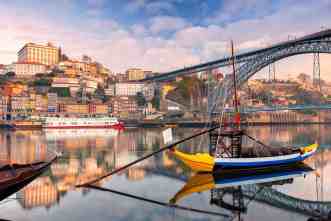
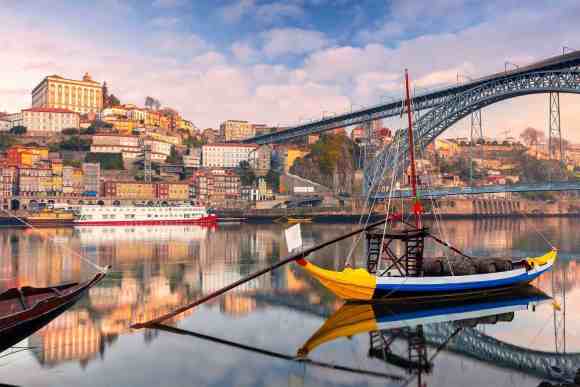
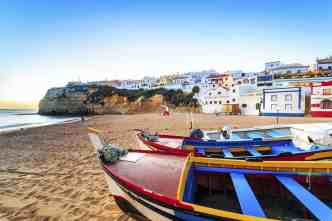
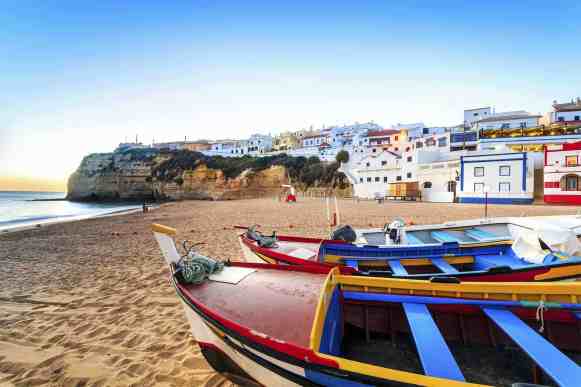




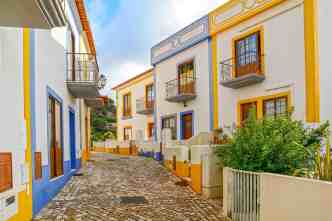
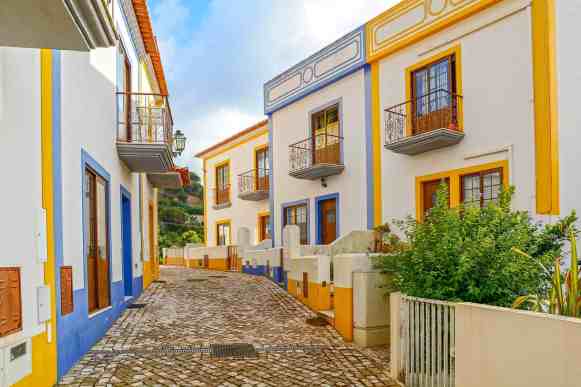


Hi, my wife and I both run our own limited companies in the UK but are effectively digital nomads. We want to move to Portugal with our 2 children but are struggling to know where to start. Can we arrange a call with someone please?
Hi Stephen, please, get in touch with our Portugal expert Joana: https://expatra.com/author/joanatfernandes/. Joana and her team can help with the whole relocation process. Good luck
Hi,
My husband has Polish Nationality as well as British Nationality. Will this make it easier for us to live in Portugal and for us both to get residency? I only have a British Passport.
Thanks
Jo
Hello Jo,
My name is Joana, lawyer at L.V.P. Advogados, a law firm based in trendy Lisbon. I shall be happy to help you with this matter.
Yes, definitely. Your husband as an EU citizen can simply register as a Portuguese resident and as soon as he does, you will be able to join him under the family reunification rules.
Eligible non-EU dependent relatives of an EU citizen are entitled to a Portugal Residency Card valid for a period of 5 years and renewable thereafter every 5 years. There is also the possibility of applying for Portuguese citizenship, subject to passing a basic language test, after 5 years of holding legal residency in Portugal.
If you have further questions in regard to the application, please note we have a knowledgeable team with expertise in Immigration Law which shall be delighted to assist you. Please check this link for further information: https://www.lvpadvogados.com/
I hope this helps,
Joana
My husband and I purchased a property in Portugal in August 2016 (pre brexit). We have a NIF and bank account. We hope to semi retire and spend half of our time in Portugal. Is this possible or will we be restricted to the 90 days in every 180 days? Do we have any options to extend this? Many thanks
Hello @Trudi Withey, it is a pleasure to e-meet you! I am a lawyer at L.V.P. Advogados, a law firm based in trendy Lisbon and I shall be happy to help you with this matter.
Please note that in the case you wish to stay more than 90 days every 180 days in Portugal, you will need to apply for a residence permit.
Based on the information provided by you, I can think of 2 options:
1. Apply for a Golden Visa (residence permit for investors) where the minimum stay requirement that you must fulfill is only 14 days every 2 years but also free to stay as long as you wish in the country with no need to change your tax status to Portugal. OR
2. Apply for the D7 Visa, a very common option for retirees and a very cost effective option. One thing you can keep in mind though, is that the minimum stay requirement is approximately 6 months per year and from the Tax perspective, you will need to change your tax status to Portugal. For this option, you may also like to note that as a new resident of Portugal you will be eligible to benefit from a special tax status under the so called “non-habitual resident” (NHR) tax regime, which will allow you to enjoy a 10-year tax exemption on most non-Portugal-sourced types of income.
If you have any questions about the application, please note we have a knowledgeable team with expertise in Immigration Law who shall be delighted to assist you. Please check this link for further information: https://www.lvpadvogados.com/
I hope this helps,
Joana
Hi,
My husband has Polish Nationality as well as British Nationality. Will this make it easier for us to live in Portugal and for us both to get residency? I only have a British Passport.
Thanks
Jo
Hi good after noon,
As a British Nationa, I have residence permit before Brexit, however, I have not yet received any email to visit SEF for finger print to obtain residence card. I wonder if you have any update on it.
Thanks and kind regards
Asif
Hi Asif, it would probably be better to get in touch with Joana directly through the Enquiry link on her page https://expatra.com/author/joanatfernandes/